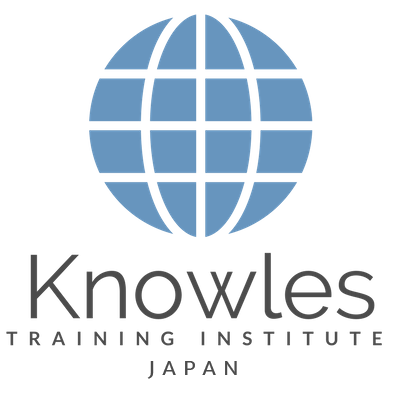Crisis Management Lunch Talk in Japan
Welcome to our Crisis Management Lunch Talk in Japan, where we explore the strategies and best practices for effectively navigating crises in today’s unpredictable business environment. In Japan, where resilience and preparedness are essential in the face of natural disasters, economic downturns, and other unexpected events, crisis management plays a crucial role in ensuring business continuity and safeguarding organizational reputation. This session aims to equip participants with the knowledge, tools, and frameworks to anticipate, respond to, and recover from crises with confidence and resilience.
As organizations in Japan face increasingly complex and interconnected challenges, the ability to manage crises effectively has never been more critical. This Lunch Talk provides a comprehensive overview of crisis management principles, drawing on real-world examples and case studies to illustrate key concepts and strategies. Whether facing a natural disaster, cyberattack, or reputational crisis, participants will gain practical insights and actionable steps to mitigate risks, protect stakeholders, and emerge stronger from adversity.
Talk Objectives:
- Understanding Crisis Management: Define crisis management and its importance in proactively identifying, assessing, and mitigating risks to organizational resilience and reputation. Explore the key phases of crisis management, including preparedness, response, recovery, and learning.
- Assessing Risks and Vulnerabilities: Conduct a comprehensive risk assessment to identify potential threats, vulnerabilities, and impact scenarios that could disrupt business operations or reputation. Analyze internal and external factors, such as natural disasters, supply chain disruptions, cybersecurity threats, and regulatory compliance issues.
- Developing Crisis Management Plans: Create robust crisis management plans that outline roles, responsibilities, communication protocols, and escalation procedures for responding to emergencies effectively. Define clear decision-making frameworks and establish command structures to coordinate response efforts and facilitate timely decision-making.
- Building Crisis Communication Strategies: Develop proactive and transparent communication strategies to keep stakeholders informed, address concerns, and maintain trust and credibility during crises. Craft key messages, FAQs, and communication channels tailored to different audiences, including employees, customers, investors, media, and regulatory authorities.
- Executing Crisis Response Protocols: Implement crisis response protocols and procedures to mobilize resources, activate emergency response teams, and execute predefined action plans swiftly and decisively. Coordinate cross-functional collaboration and establish communication hubs to facilitate information sharing and decision-making in real-time.
- Managing Stakeholder Relationships: Proactively engage with stakeholders, including employees, customers, suppliers, regulators, and community partners, to build trust, manage expectations, and address concerns during crises. Demonstrate empathy, transparency, and accountability in all communications and actions to maintain stakeholder confidence and support.
- Conducting Crisis Simulations and Drills: Conduct regular crisis simulations and tabletop exercises to test the effectiveness of crisis management plans, identify gaps, and enhance organizational readiness and resilience. Evaluate response capabilities, decision-making processes, and communication effectiveness in simulated crisis scenarios.
- Monitoring and Evaluation: Establish monitoring mechanisms to track crisis indicators, emerging threats, and stakeholder sentiment in real-time. Conduct post-crisis reviews and evaluations to assess response effectiveness, identify lessons learned, and implement corrective actions to strengthen crisis management capabilities.
- Fostering Organizational Resilience: Cultivate a culture of resilience within the organization by promoting adaptability, agility, and continuous learning in the face of uncertainty and adversity. Encourage proactive risk management, innovation, and collaboration across departments to build organizational capacity to withstand and recover from crises.
- Learning and Continuous Improvement: Foster a culture of learning and continuous improvement by debriefing after crises, documenting lessons learned, and updating crisis management plans and protocols accordingly. Encourage feedback, innovation, and knowledge sharing to enhance crisis preparedness and response capabilities over time.
The Crisis Management Lunch Talk has equipped participants with the knowledge, skills, and mindset needed to effectively anticipate, respond to, and recover from crises in Japan’s dynamic business environment. By embracing proactive risk management, robust planning, and transparent communication, organizations can mitigate risks, protect stakeholders, and emerge stronger from adversity. Together, let’s build a resilient future where crises are opportunities for growth and transformation.
Ready to enhance your organization’s crisis management capabilities and safeguard against unforeseen risks in Japan’s competitive business landscape? Start by applying the principles and strategies discussed in this Lunch Talk to your organization’s crisis management planning and preparedness efforts. Invest in proactive risk assessments, crisis simulations, and stakeholder engagement initiatives to build organizational resilience and readiness for any challenge that may arise. Together, let’s ensure that your organization is prepared to navigate crises with confidence and resilience, safeguarding its reputation and securing its future success.
More Information:
Duration: 60 minutes
Fees: $1299.97 USD 991.50
For more information please contact us at: contact@knowlesti.co.jp
If you would like to register for this talk, fill out the registration form below.

